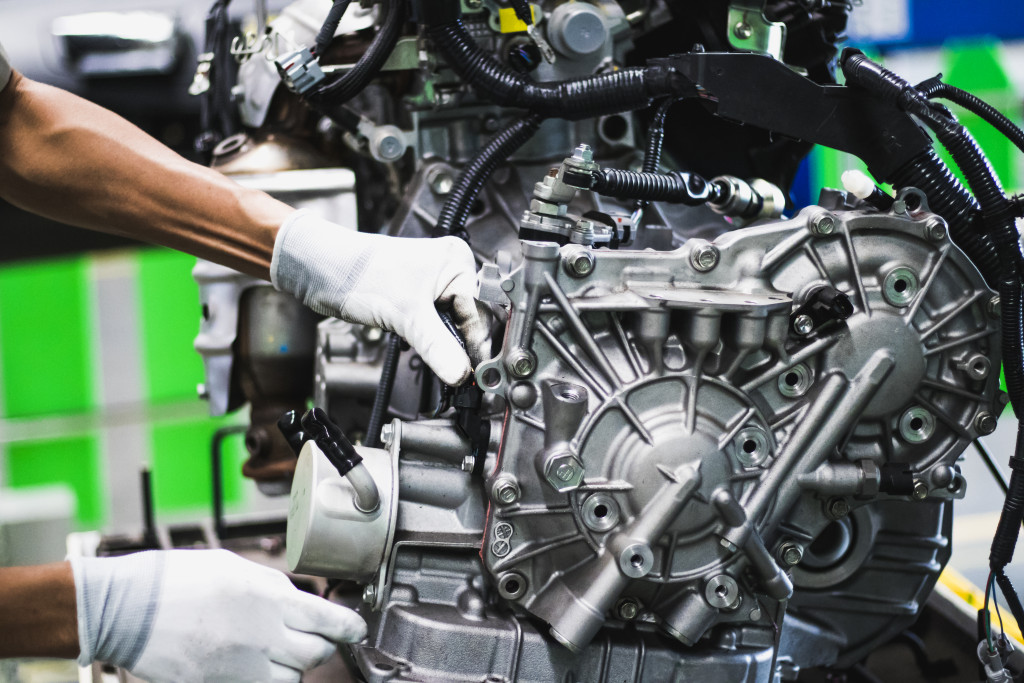It’s no secret that the automotive industry has significantly impacted transportation. But what is less well-known is how this industry has changed over time and the effects it has had on local transport. In this article, we will explore the history of the automotive industry and its impact on transportation. We will also look at how new technologies are changing how we move around our cities and towns.
The History of Automobile and Transportation
The automotive industry has been a part of American life for over a century. The introduction of the first cars was in the early 1900s, and they quickly became a staple of American culture. Cars provided a new level of freedom and mobility that was previously unknown. They allowed people to travel greater distances and explore new areas.
The automotive industry continued to grow throughout the 20th century. Cars became more affordable, and more people began to own them. This led to a rise in car-based transportation. The popularity of the automobile also had a profound effect on the development of our cities and towns. Suburbs sprang up around major metropolitan areas, and the interstate highway system was built to connect these new communities.
The 21st century has seen a significant shift in the automotive industry. Advances in technology have led to new transportation options, such as electric cars and ride-sharing services. These new technologies are changing the way we think about transportation, and they are having a significant impact on our cities and towns.
Advancements in Automobile Repairing
As automobiles have become more complex, so too has repaired them. Professional mechanics now require extensive training and experience to repair today’s cars properly. This has led to a rise in the popularity of car-repair shops and growing demand for qualified mechanics.
Automobile repairing has also become more high-tech in recent years. New diagnostic tools and software allow mechanics to troubleshoot problems quickly and accurately. This has helped reduce the cost of car repair and make it more accessible to the average person.
Moreover, specific repair technology, tools, and shops are available today. For instance, if you own a Porsche, you can look for repair shops for Porsche in nearby areas. Many Porsche-specific repair shops and technicians have the experience and knowledge necessary to fix your car correctly.
The Effect of New Technologies on Local Transportation
As we move into the 21st century, we see a significant shift in the automotive industry. Advances in technology lead to the development of new transportation options, such as electric cars and ride-sharing services. These new technologies are changing the way we think about transportation, and they are having a significant impact on our cities and towns.
Electric Cars

Electric cars are becoming increasingly popular, thanks to their many benefits. They are more efficient than gas-powered cars, and they emit no pollutants. This makes them a more environmentally friendly option and a good choice for people who care about the environment.
Electric cars also have several other advantages. They are cheaper to operate than gas-powered cars, and they have a longer lifespan. They are also quieter and more comfortable to drive than traditional cars.
There are several reasons why electric cars are cheaper and more efficient than gas-powered cars. For one, electric vehicles require less maintenance than gas-powered cars. They also emit no pollutants, which makes them environmentally friendly. They also have a longer lifespan and can save on fuels required to run traditional vehicles.
Ride-Sharing Services
Ride-sharing services are another major innovation in the transportation industry. These services allow people to share rides with others, which reduces the cost and environmental impact of each trip. Ride-sharing services also provide a convenient way for people to get around their cities and towns.
The popularity of ride-sharing services is increasing. Many people are choosing to use these services instead of owning a car. This is helping to reduce the number of vehicles on our roads and promote sustainable transportation options.
Self-Driving Cars
Self-driving cars are cars that can drive themselves without any human input. These cars use various sensors and mapping technologies to navigate the roads and avoid obstacles.
Self-driving cars have several advantages over traditional vehicles. They are safer because they can avoid accidents caused by human error. They are also more efficient and can reduce traffic congestion. Moreover, self-driving cars can free up people’s time by allowing them to do other activities while the vehicle is driving.
The advent of self-driving cars will significantly impact our transportation system. These cars have the potential to revolutionize the way we live and work. They could also help to reduce traffic congestion and greenhouse gas emissions. We can only wait to see their effect on our cities and towns.
The automotive industry is evolving rapidly, and it is clear that the future of transportation is in flux. It will be interesting to see how these new technologies play out and their effect on our local transportation systems.







